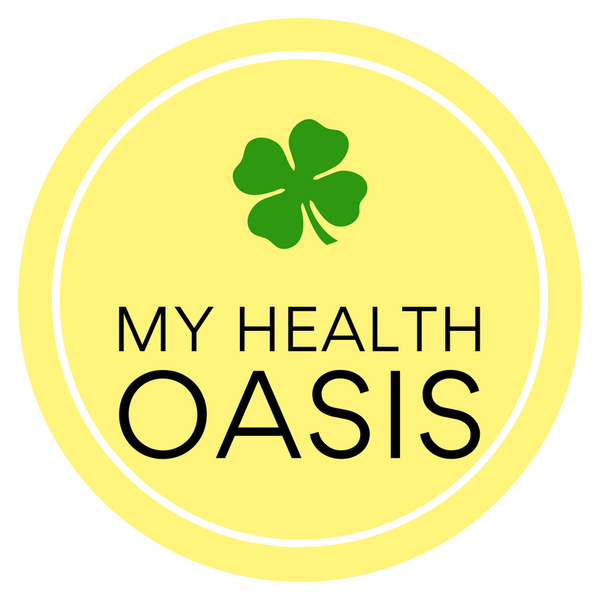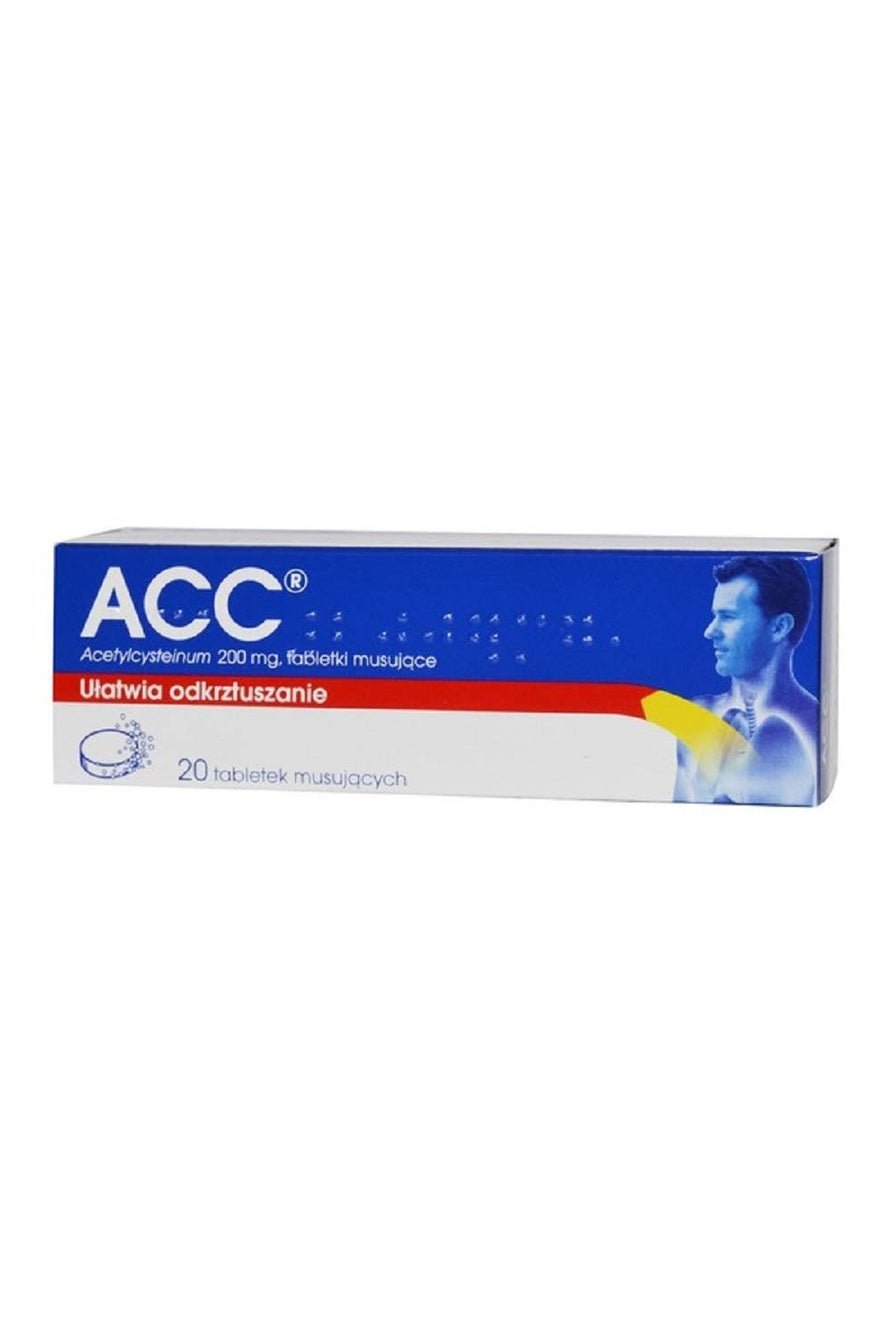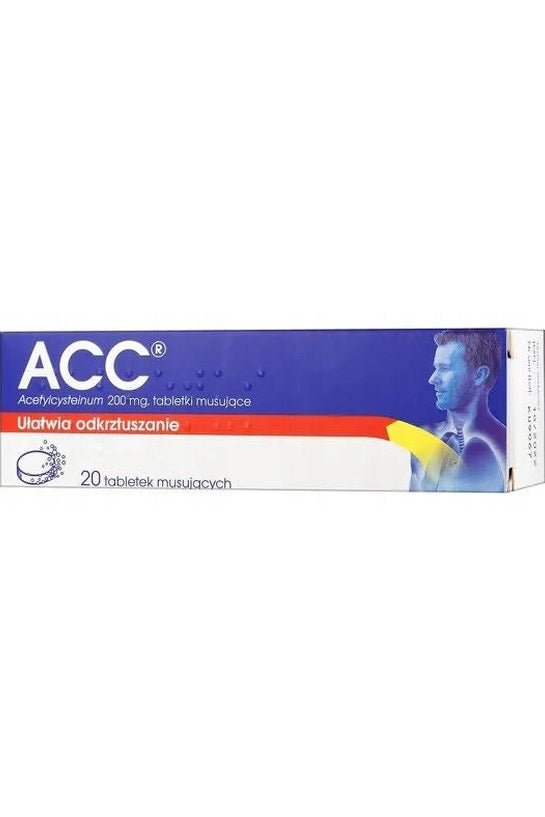Sandoz
ACC - 20 Tablets
ACC - 20 Tablets
Couldn't load pickup availability
Shipment starts on {DATE_WILL_BE_SHOWN_HERE}
Product Details
Product Details
ACC is a medicinal product used to dilute secretions in the respiratory tract to make it easier to expectorate.
COMPOSITION
The active substance of the drug is acetylcysteine.
1 effervescent tablet contains 200 mg of acetylcysteine.
Excipients: anhydrous citric acid, sodium bicarbonate, anhydrous sodium carbonate, mannitol, anhydrous lactose, ascorbic acid, sodium citrate, sodium saccharin, blackberry flavor "B".
DOSAGE
Always use this medicine exactly as described in this leaflet or as directed by your doctor or pharmacist. If in doubt, ask your doctor or pharmacist.
The following dosage is usually used:
Adults and adolescents over 14 years of age:
1 ACC tablet two or three times a day
Children aged 6 to 14 years:
1 ACC tablet twice daily
Method of administration:
- ACC should be taken after a meal.
- Dissolve the tablet in half a glass of water and drink immediately after dissolution.
- The medicine should not be used in the evening. The last dose should be taken no later than 4 hours before bedtime.
Do not use ACC for longer than 4 to 5 days without your doctor's advice.
ACTION
ACC contains acetylcysteine, which reduces the viscosity of bronchial secretions and facilitates expectoration.
INDICATIONS
ACC is used for a short period of time as a drug that dilutes respiratory secretions and facilitates expectoration in patients with symptoms of infection in the upper respiratory tract .
CONTRAINDICATIONS
When not to use ACC :
- If you are allergic to acetylcysteine, methyl parahydroxybenzoate or any of the other ingredients of ACC,
- If you have an active stomach or duodenal ulcer,
- If you have an acute asthmatic condition.
SIDE EFFECTS
Like all medicines, this medicine can cause side effects, although not everybody gets them.
Uncommon side effects (affects less than 1 in 100 people):
- hypersensitivity reactions (urticaria, rash, itching, angioedema),
- headache, tinnitus,
- rapid heartbeat (tachycardia); decreased blood pressure,
- nausea, vomiting, diarrhea abdominal pain.
Rare side effects (less than 1 in 1,000 people):
- indigestion,
- dyspnoea,
- bronchospasm.
Very rare side effects (less than 1 in 10,000 people):
- anaphylactic or anaphylactic-like reaction, up to anaphylactic shock,
- haemorrhage.
WARNINGS AND PRECAUTIONS
If you have (currently or in the past):
- asthma,
- respiratory failure,
- peptic ulcer disease,
- problems with expectoration,
consult your doctor before taking this medicine.
The medicine contains lactose and sodium.
TAKING OTHER MEDICINES
Tell your doctor about all the medicines you are taking, have recently taken, or might take.
- ACC should not be used with antitussive medications.
- The drug may enhance the effects of nitroglycerin and other nitrates.
- The medicine may weaken the effect of some antibiotics. It should be taken 2 hours after taking the antibiotic.
TAKING THE MEDICINE WITH FOOD AND DRINK
The medicine should be taken after a meal.
While taking the medicine, you should drink at least 1.5 liters of fluids.
PREGNANCY AND BREASTFEEDING
If you are pregnant or breast-feeding, think you may be pregnant or are planning to have a baby, ask your doctor or pharmacist for advice before taking this medicine.
ACC can be used during pregnancy and breastfeeding only if your doctor considers it necessary.
USE OF THE DRUG IN CHILDREN AND ADOLESCENTS
ACC should not be used in children under 6 years of age.
PRODUCER
SANDOZDomaniewska 50c
Warsaw
Share
- Turn on embed
- Create a DECO Banner from our app
- Select a matching position
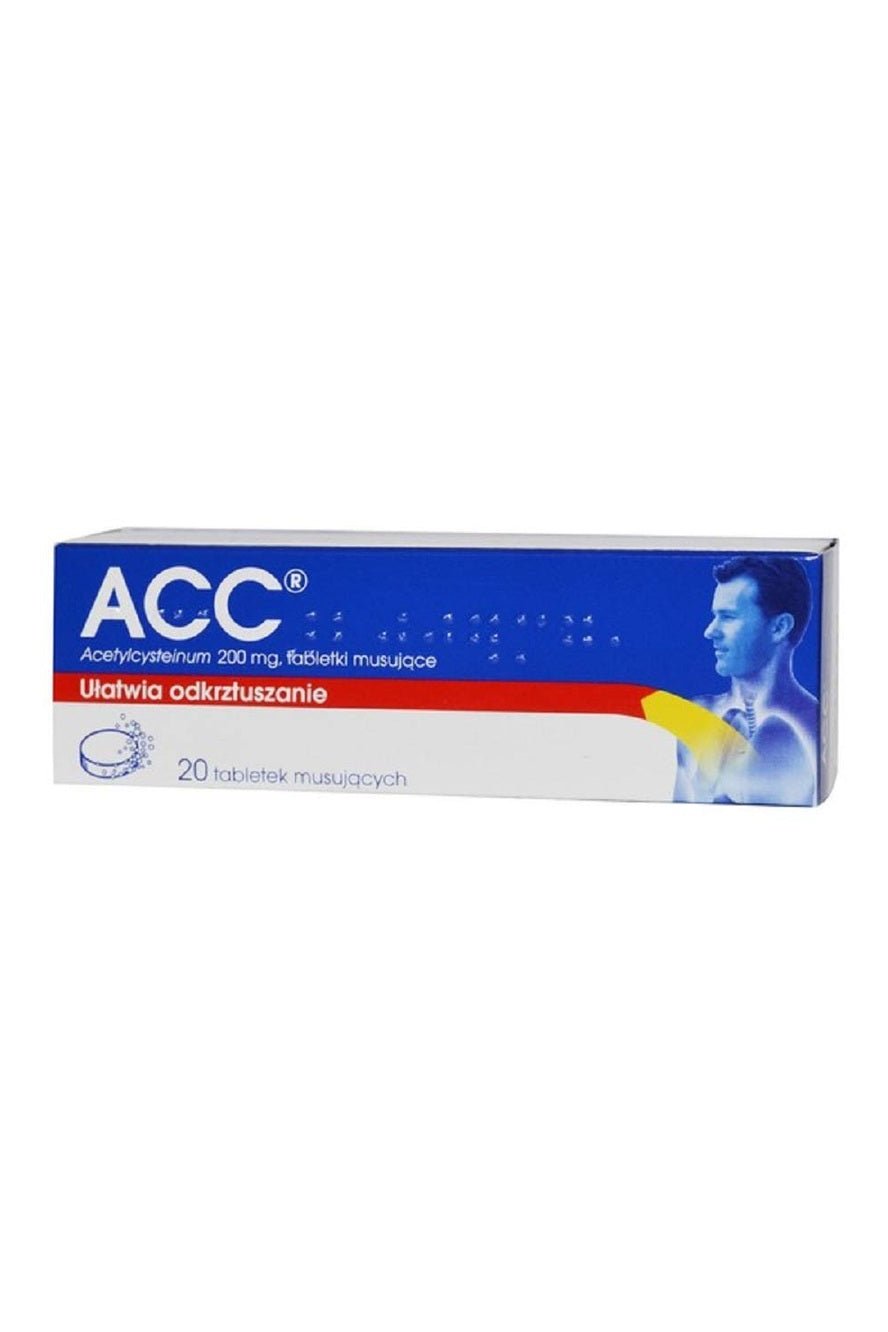
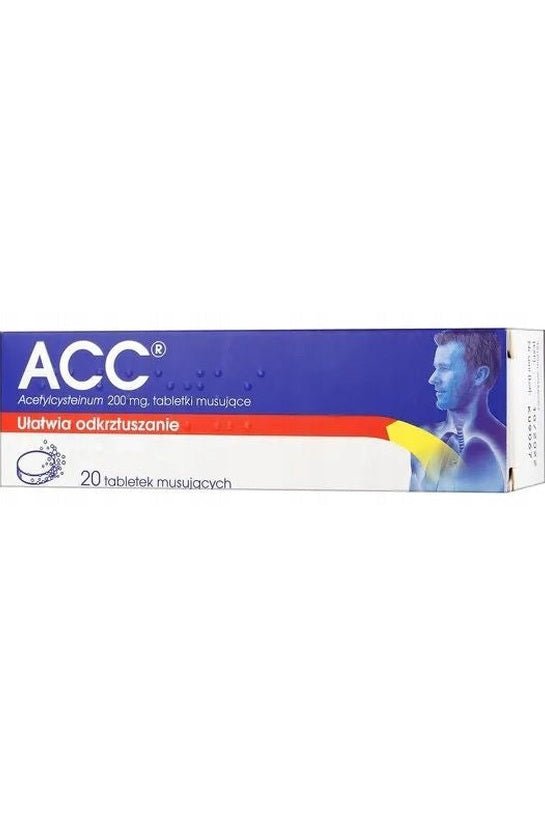
These really do work
Very good tablets. Thank you.
Absolutely a must have
It's a must when sick
A difficult product to buy so relieved when I spotted these on Oasis. Reasonably priced and great delivery times - will definitely order again.
